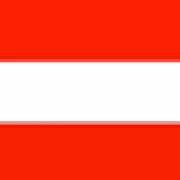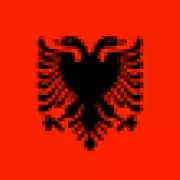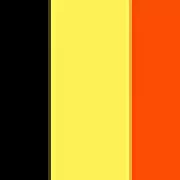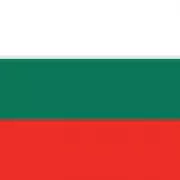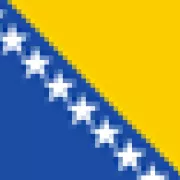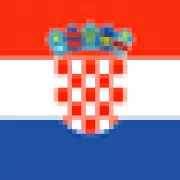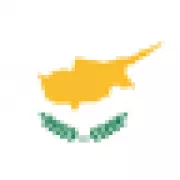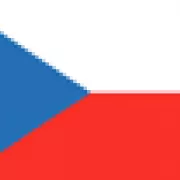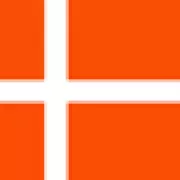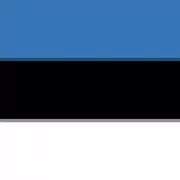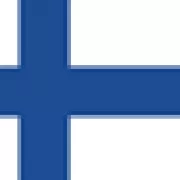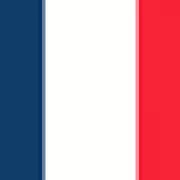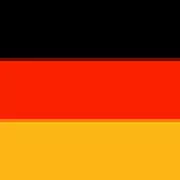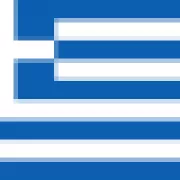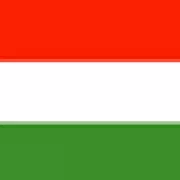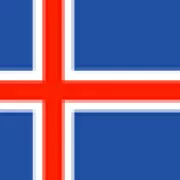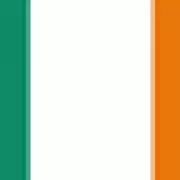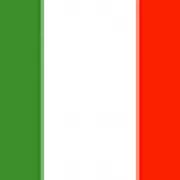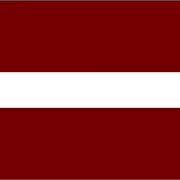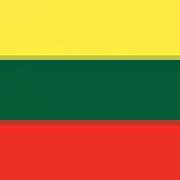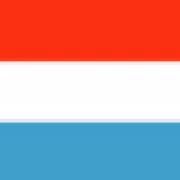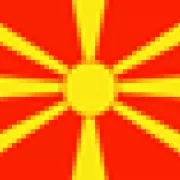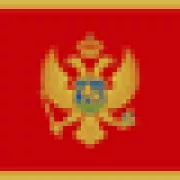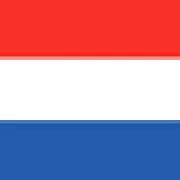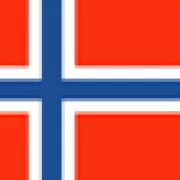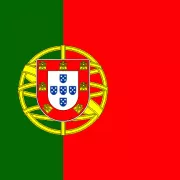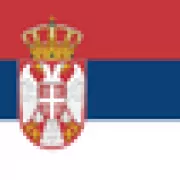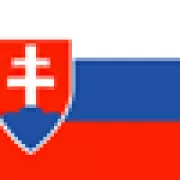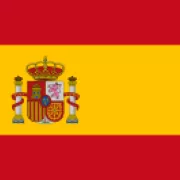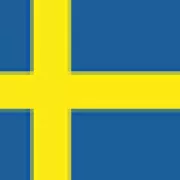Nacionalni koordinatorji za izobraževanje odraslih
Države članice EU in druge sodelujoče države imenujejo nacionalne koordinatorje, da bi olajšale njihovo sodelovanje pri izvajanju novega evropskega programa za izobraževanje odraslih in ustreznih pobud evropskega programa znanj in spretnosti. Njihovo delo prispeva k spodbujanju izobraževanja odraslih v njihovi državi z zagotavljanjem političnega svetovanja ter zbiranjem in razširjanjem najboljših praks nacionalnim organom. Vsak nacionalni koordinator določi delovni program, v katerem so opredeljeni posebni ukrepi, ki jih bo njegova organizacija sprejela za izvajanje novega evropskega programa za izobraževanje odraslih in ustreznih pobud evropskega programa znanj in spretnosti v njegovi državi. Program Evropske unije Erasmus+ podpira to izvajanje z namenskimi nepovratnimi sredstvi.
S klikom na zastavico lahko dostopate do kontaktnih podatkov sedanjih nacionalnih koordinatorjev in informacij o njihovem delu.
National coordinators for Adult learning - Avstrija
Minoritenplatz 5, 1014
Dunaj, AT
Phone: +43153120-0
E-mail: ministerium@bmbwf.gv.at
Website: https://www.bmbwf.gv.at/
Oddelek za izobraževanje odraslih:
Ms Doris WYSKITENSKY-Project Manager-Koordinator
National coordinators for Adult learning - Albanija
Rr. Mustafa Lleshi, Godina e Thesarit, 1001
Tirane, AL
Phone: +3554237087
E-mail: info.akafp@akafp.gov.al
Website: https://akafp.gov.al/
Nacionalna agencija za poklicno izobraževanje in usposabljanje ter kvalifikacije:
Mr. Ejvis GISHTI-Director-Koordinator
National coordinators for Adult learning - Belgija (FR)
Bvd Léopold II, 44, 1080
Bruselj, BE fr
Phone: +322413.26.28
E-mail: AEAA@cfwb.be
Website: https://www.federation-wallonie-bruxelles.be/
Direction des Relations Internationales:
Ms Michèle MOMBEEK-Chargée de Mission-Koordinator
National coordinators for Adult learning - Belgija (NL)
Koning Albert II-laan 15, 1210
Bruselj, BE nl
Phone: (02) 553 97 31
E-mail: info@epos-vlaanderen.be
Website: https://langlevenleren.be/
Ms Karine NICOLAY-Project Manager-Koordinator
National coordinators for Adult learning - Bolgarija
2A Kniaz Dondukov Blvd, 1000
Sofija, BG
Phone: +359 2 92 177 44
E-mail: press_mon@mon.bg
Website: https://www.mon.bg/en/100000
Direktorat za poklicno izobraževanje in usposabljanje:
Ms Valentina DEIKOVA, Ms Vania Tividosheva, Ms Maria Todorova, Ms Zhuliyan Gochev Ms Radostinka Vasileva
-State Expert-Koordinator
National coordinators for Adult learning - Bosna in Hercegovina
Kneza Domagoja bb, 88000
Mostar, BA
Phone: (0)51430710
E-mail: info@aposo.gov.ba
Ms Biljana Popovic-Adviser-Koordinator
National coordinators for Adult learning - Hrvaška
Garićgradska 18, 10000
Zagreb, HR
Phone: +38111 3613-734
E-mail: ured@asoo.hr
Website: https://mpn.gov.rs/
Oddelek za zagotavljanje kakovosti:
Mr Ognjen Piljek Žiljak-Head of Department-Koordinator
National coordinators for Adult learning - Ciper
Kimonos & Thoukididou, 1434, 2006
Nikozija, CY
Phone: +0035722800697
E-mail: isavvides@moec.gov.cy
Website: http://www.moec.gov.cy/
Mr Ioannis Savvides-Head-Koordinator
National coordinators for Adult learning - Češka republika
Senovážné náměstí 872/25, 11000
Praga, CZ
Phone: 00420222122112
E-mail: sekretariat@npi.cz
Website: https://www.npi.cz/
Nacionalni pedagoški inštitut:
Mr Jan BRUHA-Senior Expert-Koordinator
National coordinators for Adult learning - Danska
Frederiksholms Kanal 21, 1220
København, DK
Phone: +45 3392 5000
E-mail: uvm@uvm.dk
Website: https://www.uvm.dk/
Charlotte ROMLUND HANSEN-Special Adviser-Koordinator
National coordinators for Adult learning - Estonija
Joc tn 9, 10144
Talin, EE
Phone: +372 5111794
E-mail: andras@andras.ee
Website: https://www.andras.ee/
Mrs Sirje PLAKS-Project Manager-Koordinator
National coordinators for Adult learning - Finska
P.O. BOX 29, 23
Vlada, FI
Phone: 00358 295 16001
E-mail: kirjaamo.okm@gov.fi
Website: https://okm.fi/etusivu
Oddelek za poklicno izobraževanje:
Mr Erno HYVONEN-Project Coordinator-Koordinator
National coordinators for Adult learning - Francija
9 Rue Des Gamiins, 33000
Bordeaux, FR
E-mail: aefa@agence-erasmus.fr
Website: https://agence.erasmusplus.fr/programme-erasmus/outils/aefa/
Ms Berenice CAPPE-Project Manager-Koordinator
National coordinators for Adult learning - Nemčija
Robert-Schuman-Platz 3, 53175
Bonnu, DE
Phone: +49 228 107 0
E-mail: agenda-erwachsenenbildung@bibb.de
Website: https://www.agenda-erwachsenenbildung.de/
Mr Johannes Georg ROSENSTEIN-Wissenschaftlicher Mitarbeiter-Koordinator
National coordinators for Adult learning - Grčija
Andrea Papandreou Street 37, 15180
Amaroussio, Attiki, EL
Phone: +30 210 3442202
E-mail: gsvetll@minedu.gov.gr
Generalni sekretariat za vseživljenjsko učenje in podporo mladim:
Ms Evangelia PANTA-Head of Unit for European and International Affairs-Koordinator
National coordinators for Adult learning - Madžarska
Kalvária tér 7, 1089
Budimpešta, HU
Phone: 003613039300
E-mail: szakkepzes@nive.hu
Website: https://www.nive.hu//
Ms Fruzsina LUKÁCS-Project Manager-Koordinator
National coordinators for Adult learning - Islandija
Borgartún 30, 105
Reykjavík, IS
Phone: +3545155800
E-mail: rannis@rannis.is
Website: https://www.rannis.is/
Center za raziskave:
Mr Skúli LEIFSSON-Senior Advisor-Koordinator
National coordinators for Adult learning - Irska
2nd Floor 83-87 Main Street Ranelagh,
Dublin 6, IE
Phone: 00353 1 406 8220
E-mail: mail@aontas.com
Website: https://www.aontas.com/
Ms Dearbháil LAWLESS-CEO-Koordinator
National coordinators for Adult learning - Italija
Corso d'Italia 33, 198
Rim, IT
Phone: +39 06 854471
E-mail: urp@inapp.org
Website: https://www.inapp.gov.it/
Mr Claudio VITALI-Project manager-Koordinator
National coordinators for Adult learning - Latvija
Valnu iela 2, 1050
Riga, LV
Phone: +37167047754
E-mail: Pasts@izm.gov.lv
Website: https://www.izm.gov.lv/lv
Oddelek za izobraževanje:
Ms Laura Iveta STRODE-Senior Expert-Koordinator
National coordinators for Adult learning - Lihtenštajn
Landstrasse 92, 9494
Schaan, FL
Phone: 00423 232 95 80
E-mail: stiftung@erwachsenenbildung.li
Website: https://www.erwachsenenbildung.li/de/
Ms Sabine Frei-Wille-Director-Koordinator
National coordinators for Adult learning - Litva
A. Volano str. 2, 1124
Vilna, LT
Sektor za neformalno izobraževanje:
Tomas PUTYS-Head of Division-Koordinator
National coordinators for Adult learning - Luksemburg
15, rue Léon Hengen, 1745
Luksemburg, LU
Phone: (+352) 8002-4488
E-mail: sfa@men.lu
Website: https://men.public.lu/fr/formation-adultes.html
Ms Aline Schott-Deputy director-Koordinator
National coordinators for Adult learning - Makedonija
Dimitrie Cupovski 13, 1000
Skopje, MK
Phone: +38923220808
E-mail: contact@cov.gov.mk
Website: https://cov.gov.mk/
Mr Konstantin HRISTOVSKI-Head of Department-Vodja oddelka
National coordinators for Adult learning - Malta
Great Siege Road , 1999
Floriana, MT
Phone: 356 2598 1121
E-mail: Tom.Borg@gov.mt
Website: https://lifelonglearning.gov.mt/
Direktorat za raziskave, vseživljenjsko učenje in zaposljivost (DRLLE):
Mandy Mifsud - National Coordinator, Tom Borg - Project Manager, Mariah Farrugia - Project Officer--Koordinator
National coordinators for Adult learning - Črna gora
Vaka Durovica b.b., 81000
Podgorica, ME
E-mail: adultlearning@live.edu.me
Website: https://www.gov.me/mps
Ms Marija DURISIC-Advisor for Adult Education-Koordinator
National coordinators for Adult learning - Nizozemska
Rijnstraat 50, PO Box 16375, 2515
Den Haag, NL
Phone: +31 70 214 02 14
E-mail: Secretariaat_MBO@minocw.nl
Website: https://www.rijksoverheid.nl/ministeries/ministerie-van-onderwijs-cultuur-en-we…
Direktorat za poklicno izobraževanje:
Mr Joram Snijders-Policy Advisor-Koordinator
National coordinators for Adult learning - Norveška
P.O. Box 1093, 5809
Bergen, NO
Phone: 55 30 38 00
E-mail: post@hkdir.no
Website: https://hkdir.no/
Ms Hanne CHRISTENEN-Senior Adviser-Koordinator
National coordinators for Adult learning - Poljska
ul. Wspólna 1/3; 00-529,
Varšava, PL
Phone: +48 22 34 74 100
E-mail: kancelaria@mein.gov.pl
Website: https://www.gov.pl/web/edukacja-i-nauka
Oddelek za strategijo, kvalifikacije ter poklicno izobraževanje in usposabljanje:
Mr Stanislaw DRZAZDZEWSKI-Counsellor General-Koordinator
National coordinators for Adult learning - Portugalska
Av. 24 de Julho, n.º 138, 1399-026,
Lizbona, PT
Phone: +351 21 394 37 00
E-mail: anqep@anqep.gov.pt
Website: https://anqep.gov.pt/
Ms Ana Cláudia VALENTE-Deputy Director-Koordinator
National coordinators for Adult learning - Romunija
str. Dem.I. Dobrescu nr 2-4 sector 1, 10026
Bukarešta, RO
Phone: +40213110202
E-mail: dgfm@mmuncii.gov.ro
Website: http://mmuncii.ro/j33/index.php/ro/
Politike zaposlovanja, kompetenc in poklicne mobilnosti:
Ms. Ana RADULESCU-COUNSELLOR-Koordinator
National coordinators for Adult learning - Srbija
Nemanjina 22-26, 11000
Belgrad, RS
Phone: +38111 3613-734
E-mail: kabinet@mpn.gov.rs
Website: https://mpn.gov.rs/
Ms Vesna Fabian-Head of the Group for dual education and NQF-Koordinator
National coordinators for Adult learning - Slovaška
Bellova 54a, 83763
Bratislava, SK
Phone: +421 911 469 793
E-mail: czv@siov.sk
Website: https://siov.sk/
Oddelek za evropske politike:
Ms Lubica GALLOVA -Head Head of EU Policies Department -Koordinator
National coordinators for Adult learning - Slovenija
Ulica Ambrožiča Novljana 5, 1000
Ljubljana, SI
Phone: +386 1 5842 560
E-mail: info@acs.si
Website: https://www.acs.si/en
Ms Zvonka PANGERC-PAHERNIK-Head of Unit-Koordinator
National coordinators for Adult learning - Španija
Ministerio de Educación, Formación Profesional y Deportes
Pº Prado, 28-6ª pl., 28014
Madrid, ES
Phone: +34915065661
E-mail: sg.oalv@educacion.gob.es
Website: https://www.educacionyfp.gob.es/ministerio/organigrama/ministra/sg-formacion-pr…
Ms Asunción MANZANARES MOYA-Deputy Director General-Koordinator
National coordinators for Adult learning - Švedska
Box 4002, 17104
Solna, SE
Phone: 004608 527 332 00
E-mail: euagendanvux@skolverket.se
Website: https://www.skolverket.se/
Enota za vodenje izobraževanja in strokovni razvoj:
Ms AnneCatrine Uusitalo-Director of Education-Koordinator
National coordinators for Adult learning - Turčija
Emniyet Mahallesi Abant 2 Caddesi No 8 , 6560
Ankara, TR
Phone: 0312 413 21 14 - 16
E-mail: hbogm@meb.gov.tr
Website: http://hbogm.meb.gov.tr/
Generalni direktorat za vseživljenjsko učenje:
Ms Meltem Gülnar-National Coordinator-Koordinator


